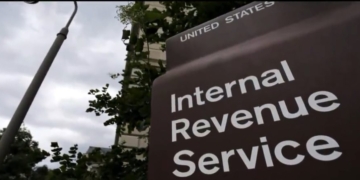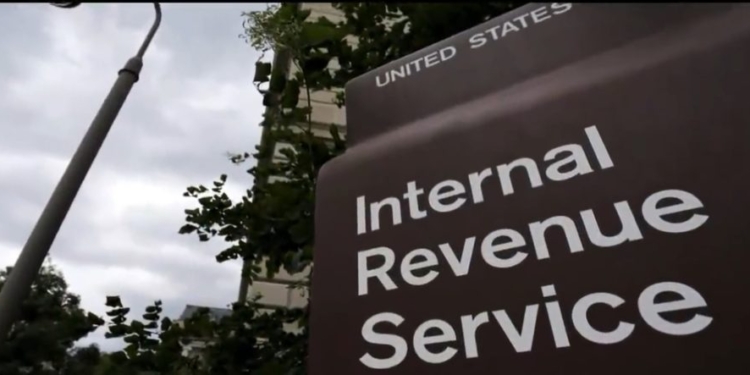Ronald Reagan’s infamous “nine most dangerous words in the English language” continue to ring remarkably prophetic. This time it’s the IRS that is “here to help.”
Courtesy of the Biden-Harris deceptively named Inflation Reduction Act, authorized a pilot program, Direct File, was initiated to go beyond collecting the tax dollars of a few “lucky” taxpayers, but to also prepare their filings. While the Internal Revenue Service (IRS) should be well versed in tax law, they are hardly a neutral party tax preparer. The intent was that if the pilot program went well, Direct File could expand and be used for every American taxpayer. What could possibly go wrong?
Not surprisingly, the results of the Direct File pilot program were predictably disastrous. A March 2025 Inspector General report revealed that it cost taxpayers millions more than expected, shortchanged filers on deserved credits, and left the program’s users confused, dissatisfied and without representation.
The IRS, as a tax preparation services business, is what Winston Churchill would call “a bull that comes with its own China shop.” Think about the IRS not only collecting our taxes but telling us how much we owed. Unfortunately, that is exactly what may happen — and soon. A Republican Congress can stop it.
As a former member of the United States House of Representatives’ Ways and Means Committee, I helped oversee the IRS. Currently, the agency has one job — to collect the revenue that funds the U.S. government. And the simple truth is that the IRS has struggled to fulfill its existing obligations for years. Every year, taxpayers complain about errors, poor customer service, and refund delays. Members of Congress know this well as so many of our constituents seek assistance though our offices when they are put off or ignored by agencies. To their credit, the IRS agents to which our office had direct access, were responsive when our office called, which only came after constituents were unable to make headway on their own.
Which raises the question: If the IRS, an agency perceived as inefficient and anti-consumer, cannot efficiently perform its core mission, how or why should it be given greater responsibilities?
Direct File robbed many Americans out of their hard-earned money. The IG zeroed in on just one example: education tax credits. The program didn’t even allow users to file Form 8863, which covers the American Opportunity and Lifetime Learning Credits. When the IG dug deeper, it estimated that those who qualified for this education tax credit missed out on an average of nearly $1,000 each thanks to this IRS screw-up.
Then there was the usability disaster. The IG noted that taxpayers “did not like Direct File’s limited tax scope and its complexity” after only one-third of the roughly 400,000 taxpayers that initially signed up for Direct File filed a return. That’s right — the system was so confusing and poorly thought out that only 140,000 of those who ultimately created or signed into a Direct File account submitted an accepted tax return.
It’s not surprising that taxpayers found Direct File difficult to use. Government-run programs are typically far less efficient and far user-friendly than their private sector counterparts. One of the biggest problems with the Direct File concept is the inability for taxpayers to file their state tax return along with their federal return. Although most taxpayers file both seamlessly with the click of a few buttons, under Direct File, they would still have to do all the separate state paperwork (or use an accountant or a service like TurboTax for their state return). So, what is the “free” Direct File program really saving them?
Not much, yet it’s costing the country millions.
The IRS originally claimed it spent $24.6 million to develop and run Direct File, but the IG found that these reported obligations “did not include all costs incurred by the government,” with millions upon millions missing. In December 2024, the IRS provided an updated projection that Direct File would cost $61.1 million assuming that 2.3 million filers use the program. That’s a hefty price tag for a system that has not yet been proven effective, and the IG “remains concerned” that even these figures might not capture the full cost.
Honestly, the IRS’s job is to legitimately collect as much revenue as possible, and it is the taxpayer’s role to pay what they owe — but not one penny more. While taxpayers are incentivized to explore every legal deduction available, the IRS does not carry that same incentive. Direct File offers no real “check and balance on behalf of the filer.”
What is most perplexing is that Direct File is a solution in search of a problem. The Volunteer Income Tax Assistance Program (VIT) and Tax Counseling for the Elderly (TCE) programs offer free tax preparation to qualified individuals in need of assistance. The service is provided by volunteers willing to serve the people of their communities.
Let’s not forget that in the taxing process in the United States, if accused of an improper tax filing, one must prove their innocence. This adversarial relationship is already tipped in favor of the government. Allowing the IRS to assume more responsibility by preparing individual tax returns would intensify this inherent conflict of interest, fundamentally threatening the fairness upon which trust in our tax system depends.
In this new Congress, Ways and Means Chairman Jason Smith (R-MO) and Tax Subcommittee Chairman Mike Kelly (R-PA) are likely eager to address this and other processes that lack accountability and trust in our government. It can be done!
Brad Wenstrup represented Ohio in the U.S. House of Representatives from 2013 to 2025. He serves on President Donald Trump’s Intelligence Advisory Board.
The views and opinions expressed in this commentary are those of the author and do not reflect the official position of the Daily Caller News Foundation.
All content created by the Daily Caller News Foundation, an independent and nonpartisan newswire service, is available without charge to any legitimate news publisher that can provide a large audience. All republished articles must include our logo, our reporter’s byline and their DCNF affiliation. For any questions about our guidelines or partnering with us, please contact [email protected].



























 Continue with Google
Continue with Google